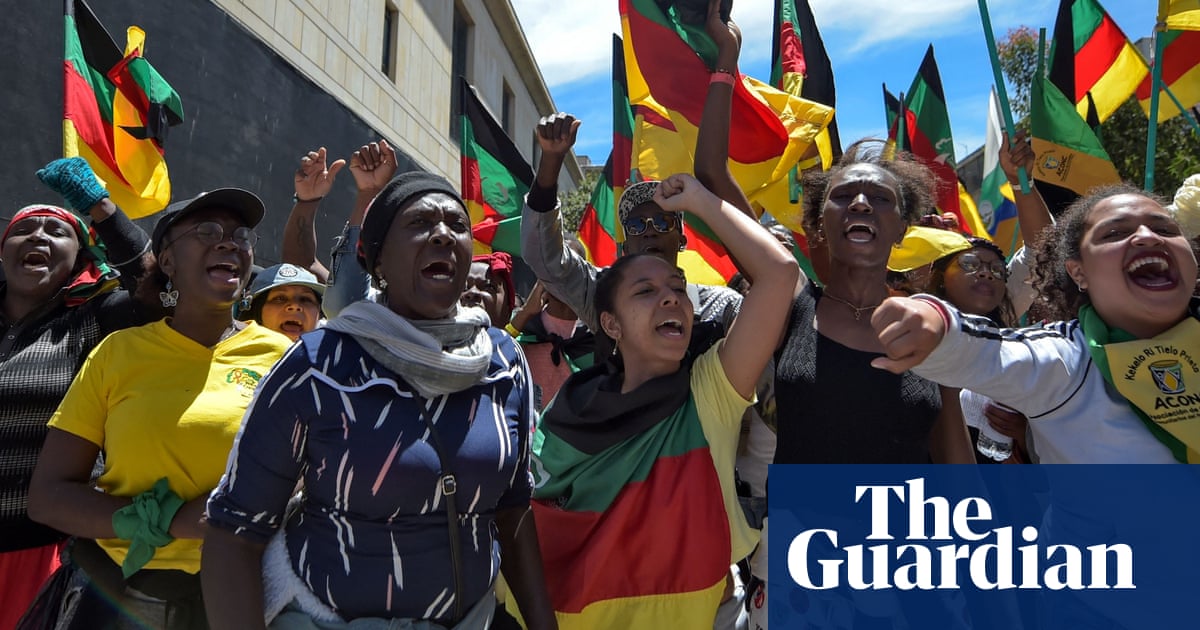
GENEVA: Airstrikes by Russia and a US-led coalition killed civilians in Syria on a large scale last year, while the Assad regime carried out unlawful chemical weapon attacks in opposition-held Eastern Ghouta, UN war crimes investigators said on Tuesday.
Daesh fighters and other insurgent groups committed war crimes including deadly attacks on civilians and using them as human shields, the investigators said in their latest report covering six months through Jan. 15.
During the period, “victims of the Syrian conflict have suffered greatly as violence countrywide re-escalated to new heights,” the UN Commission of Inquiry said.
“(Syrian) government forces continued to use chemical weapons against armed group fighters in Eastern Ghouta,” it said in its report.
Among other key findings, it said that an airstrike by a “Russian fixed-wing aircraft” using unguided weapons last November hit a market killing at least 84 people in Atareb, west of Aleppo, in a “de-escalation zone” declared by Russia, Iran and Turkey.
It found no evidence that the Russian strike had deliberately targeted the market, but said “this attack may amount to the war crime of launching indiscriminate attacks resulting in death and injury to civilians,” the first time it has explicitly implicated Moscow in possible war crimes.
And three US-led coalition strikes on a school near Raqqa in March 2017 killed 150 residents — roughly five times the toll acknowledged by the Pentagon, which said at the time that dozens of militants and not civilians were killed.
The UN investigators found no evidence that Daesh fighters were at the site, and said the US-led coalition had violated international law by failing in its duty to protect civilians.
The independent investigators called on all sides to allow access to besieged areas and all detainees. Justice must be served in any peace deal ending the conflict soon entering its eighth year, they said.
The report is based on 500 confidential interviews conducted with victims and witnesses abroad or in Syria via social media. The Assad regime has never let the team into the country.
“Vital civilian infrastructure has been decimated by repeated attacks on medical facilities, schools and markets. Humanitarian aid has been instrumentalized as a weapon of war with siege warfare and denial of life-giving assistance used to compel civilian communities and parties to the conflict alike to surrender or starve,” it said.
The regime forces used chemical weapons against insurgents in Eastern Ghouta, including chlorine three times in July, and in Harasta on the western edge of the zone in November, the report said.
“The use of chemical weapons is prohibited under customary international humanitarian law regardless of the presence of a valid military target, including when used against enemy fighters,” it said.
The multi-sided Syrian civil war has killed hundreds of thousands of people and driven at least 11 million from their homes. Neighbouring countries and global powers have entered the conflict, backing allied forces on the ground.
The UN investigators, noting that efforts for the UN Security Council to refer Syria to the International Criminal Court (ICC) have stalled, due to Russian vetoes, welcomed national jurisdictions taking up more cases.
Victims must be helped to obtain justice, which should be a “central component” of any negotiated settlement ending the war, they said.
The UN’s findings were released even as fighting continued to rage around the eastern suburbs of Damascus, with the first aid delivery in weeks to reach the besieged area cut short after the regime forces began shelling the area while aid workers were still inside.
The Syrian American Medical Society charity, which supports hospitals in Eastern Ghouta, said 79 people were killed in shelling and airstrikes, as the regime, supported by Russia’s military, pushed its assault on the opposition-held suburbs.
Monday’s aid shipment was the first to enter Eastern Ghouta amid weeks of a crippling siege and a regime assault that has killed close to 800 civilians since Feb. 18. Aid agencies, however, said Syrian authorities removed basic health supplies, including trauma, surgical kits and insulin, from the convoys before they set off.











